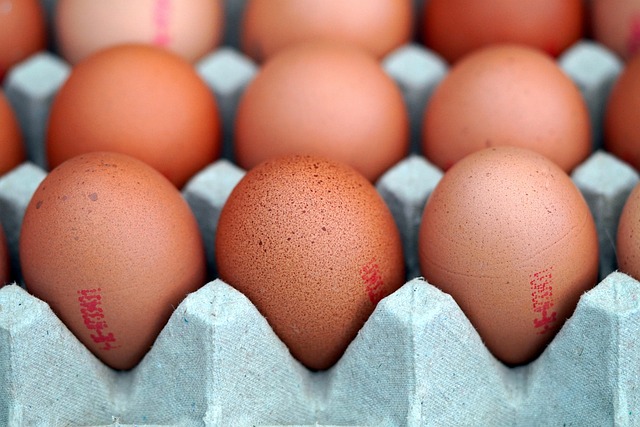The egg donation process requires emotional awareness and support for donor women, who experience a range of feelings. Building supportive networks through online/offline groups and professional guidance helps manage well-being. This process offers an alternative path to parenthood, empowering individuals with clear donor agreements fostering trust and empathy among recipient, donor, and child.
“Emotional support is a vital aspect of the journey for women considering donor eggs, an increasingly common path to building families. This article explores the nuanced emotional landscape of egg donation, offering insights into how women can navigate this complex process with resilience and strength. From understanding the motivations behind donation to creating supportive networks, we delve into strategies for coping with infertility and embracing alternative family-building methods. Additionally, we examine the unique bonds formed through donor agreements.”
Understanding the Emotional Journey of Egg Donation
Embarking on the journey of egg donation is an incredibly courageous step for many women, and recognizing the emotional aspects involved is crucial. The decision to donate eggs is deeply personal, often driven by a desire to help others achieve their dream of becoming parents. This altruistic act can evoke a range of emotions, from excitement and fulfillment to anxiety and vulnerability.
Understanding that the egg donation process isn’t just physical but also emotionally demanding is essential. Donor women may experience a mix of feelings, including pride in contributing to another’s family-building journey, yet also face moments of uncertainty and self-doubt. Supporting these individuals through counseling and creating an open dialogue about their experiences can help alleviate some of these emotions, ensuring they feel valued, respected, and emotionally supported throughout the entire process.
Building Support Systems for Donor Mothers
Building support systems is an integral part of the journey for donor mothers, who often face unique challenges and emotions during and after the egg donation process. These women deserve a robust network to help them navigate this transformative experience. Support groups, both online and offline, offer a safe space to connect with others who have gone through similar procedures, providing emotional comfort and valuable insights. Sharing experiences can foster a sense of belonging and help donor mothers understand that their feelings are valid.
Additionally, seeking guidance from experienced professionals, such as therapists or counselors specializing in reproductive health, can be immensely beneficial. These experts can provide tools to manage the emotional rollercoaster associated with egg donation, ensuring donor mothers feel empowered throughout their journey. With the right support systems in place, these women can embrace the process with confidence, knowing they have a community ready to offer help and understanding.
Coping with Infertility and Embracing Donor Eggs
Infertility can be a challenging and emotionally taxing experience for women, often leading to feelings of sadness, anxiety, and frustration. It’s important to remember that seeking help is a sign of strength. Many women are finding solace and building families through the egg donation process, which offers an alternative path to parenthood. By embracing donor eggs, individuals can navigate their fertility journey with support and increased hope.
This option allows prospective parents to focus on the excitement of welcoming a child rather than the complexities of infertility. The egg donation process involves careful selection of donors, thorough medical evaluations, and advanced techniques to ensure a safe and successful procedure. This modern approach to family-building is gaining recognition, providing comfort and empowering women to take control of their reproductive journeys.
Creating Family Connections Through Donor Agreeements
The egg donation process can be a complex yet rewarding journey for women seeking to build their families. Creating family connections through donor agreements goes beyond just biological contributions; it fosters a deep sense of community and support. These agreements often involve open communication between the recipient, donor, and sometimes even the child when they grow up. This openness allows for the development of unique relationships, where trust and empathy become the cornerstones of these families’ foundations.
By establishing clear boundaries and expectations from the start, donor agreements ensure everyone involved understands their role and responsibilities. This transparency encourages a supportive environment, enabling recipients to feel emotionally supported throughout their journey. As they navigate parenthood together, these connections can create a powerful network of love and care, enriching the lives of all those involved in the egg donation process.
The journey of using donor eggs is a deeply personal and emotional experience for women, filled with hopes, fears, and uncertainties. By understanding the intricacies of the egg donation process and building supportive networks, individuals can navigate this path with care and resilience. Through open communication, fostering connections with donor mothers, and embracing alternative family-building methods, it’s possible to find comfort and joy during what can be a challenging time. This approach not only facilitates the process but also empowers women to create or expand their families in meaningful ways.
